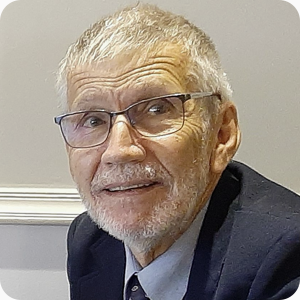One week after the United Nations Climate Conference in Dubai, its final chords are still making headlines across the world’s media. Some participants were puzzled by what occurred at the event while others were indignant about the few concrete results achieved. One way or another, COP28 concluded with an agreement that may mark the beginning of the end of the fossil fuel era, setting the stage for a rapid, just, and equitable transition that is supported by significant cuts in emissions and increased funding for this change. However, the burning issue during the conference was the supposed allegations made by the President of COP28, Sultan Al Jaber, who claimed that there is “no science” indicating a need to phase out fossil fuels to restrict global heating to 1.5°C although he later said his words were “misinterpreted” and that he agrees with the phasing out of the fossil fuels but this “needs to be orderly, fair, just and responsible”. Do experts agree with him? Let’s see what they said.
Key Takeaways:
- Nearly 200 countries have agreed to limit fossil fuels in an unprecedented decision drafted by the end of COP28.
- The declaration calls for “a transition from fossil fuels in energy systems, in a fair, orderly and equitable way”.
- Most experts say the final text holds big advantages for the fossil fuel industry precisely because it is so vague and full of loopholes.
- Burning fossil fuels accounts for over 75% of all human-caused greenhouse gas emissions.
- Specialists are convinced that while fossil energy remains necessary, innovation must drive new energy production methods.
How effective was the event in terms of discussing climate issues while simultaneously questioning the transition from fossil fuels to green energy?

“The comments by COP28 President Sultan Al Jaber, questioning the scientific basis of phasing out fossil fuels and dismissing the feasibility of transitioning to renewable energy, raise serious concerns about the effectiveness of the upcoming climate summit. His remarks undermine the very purpose of COP28, which is to address the pressing issue of climate change and accelerate the shift away from fossil fuels to sustainable energy sources. The scientific consensus is clear: burning fossil fuels is the primary driver of global warming, and a rapid and far-reaching transition to renewable energy is essential to avert catastrophic climate impacts. Al Jaber’s assertion that such a transition would be impossible “without taking the world back into caves” is not only factually incorrect but also profoundly insensitive to the plight of those already suffering the consequences of climate change, including extreme weather events, rising sea levels, and food insecurity. The effectiveness of COP28 hinges on the willingness of nations to commit to ambitious and concrete plans to reduce reliance on fossil fuels and invest in renewable energy. Al Jaber’s comments, if left unchallenged, risk diluting the momentum for such action and jeopardizing the goal of limiting global warming to 1.5°C. COP28 must provide a platform for robust scientific evidence, clear policy directives, and international cooperation to ensure that the transition to a renewable future is equitable and achievable.”

“2023 has been marked by unprecedented highs in temperatures and greenhouse gas emissions that fueled the expectations of COP28 outcomes. However, revelations about parallel negotiations for new oil and gas projects by ADNOC, the UAE’s state oil company, along with the controversial conflict of interest of Sultan Al Jaber, the conference chairman, led to expectations falling instead. Despite the turbulent outset of this newly fossil fuel lobbying space, a hint of white smoke for its original purpose was evidenced in milestones such as the creation of the expected Loss and Damage Fund and the “Alterra” private investment fund. Although these fall short of meeting the established goal, they can be acknowledged as “seed funds” to phase down climate inaction that has thus far heavily impacted the most vulnerable populations. As the world urgently requires widespread green energy exploration, these massive stakeholders global forums will at least serve as a platform to keep green fuel alive while mobilizing greater and more accessible climate finance to close the adaptation gaps in the countries of the Global South.”

“I think it’s common knowledge that having open discussions about climate issues is crucial for the world’s sustainable evolution, especially at a forum like COP28. It’s also not difficult to understand that when key figures question the need for transitioning from fossil fuels, this can seriously block progress in the climate change challenge. When there’s a lack of consensus or acknowledgment of the obvious and extensive scientific evidence supporting the transition to green energy, this might slow down the development of effective strategies. Nevertheless, I believe these events can also serve as an opportunity for dialogue and education. Hopefully, with informed discussions, the world can learn about existing studies and “science” to overcome these challenges and work towards a sustainable future.”

“The effectiveness of such events depends on a number of factors, such as the quality of the debate, the diversity of voices represented and the willingness to take concrete action. The Intergovernmental Panel on Climate Change’s (IPCC) special report on the effects of 1.5°C global warming explicitly stresses that continued reliance on fossil fuels will have dangerous and irreversible climatic repercussions. The academic literature on the science of sustainable development, which I read as a doctoral student in Sustainability Science at the Rosario Castellanos University in Mexico and Professor at the Université Publique du Centre in Haiti, makes it clear that the gradual elimination of fossil fuels is a necessary step towards achieving the goal of 1.5°C global warming. The transition to green energy is a complex process that requires a global approach. That’s why, it’s important to discuss energy transition issues in an open and integrated way, taking into account different perspectives and promoting long-term sustainable solutions.”

“Fossil energy will still be required for a long time. However, research and innovation bear the responsibility of implementing new ways to produce the energy necessary for specific activities. This includes green electricity production from plant decomposition, a method already operational in certain locations. Additionally, solar energy production using floating cells on lakes or reservoirs is particularly suitable for developing countries in Africa, among others. There are also new technologies being developed, such as producing gasoline for cars in India, alongside progress that aims to reduce gasoline consumption in both cars and aircraft. There is hope that the percentage of fossil energy in the world’s total energy consumption will decrease in the near future. Other strategies, such as reducing electricity consumption by tenfold during night-time for closed shops and public street lighting, are also being considered as alternative options.”
COP28 is one of the most significant gatherings dedicated to addressing global climate concerns. Whether you are an environmental specialist, researcher, scientist, or simply passionate about making a change in this field, explore more than 600 open positions in the Environment & NRM sector. You can also directly approach more than 20,000 organizations working in this area. Besides all of this, with an Individual Professional Membership, you gain access to tenders and grants for individuals.

